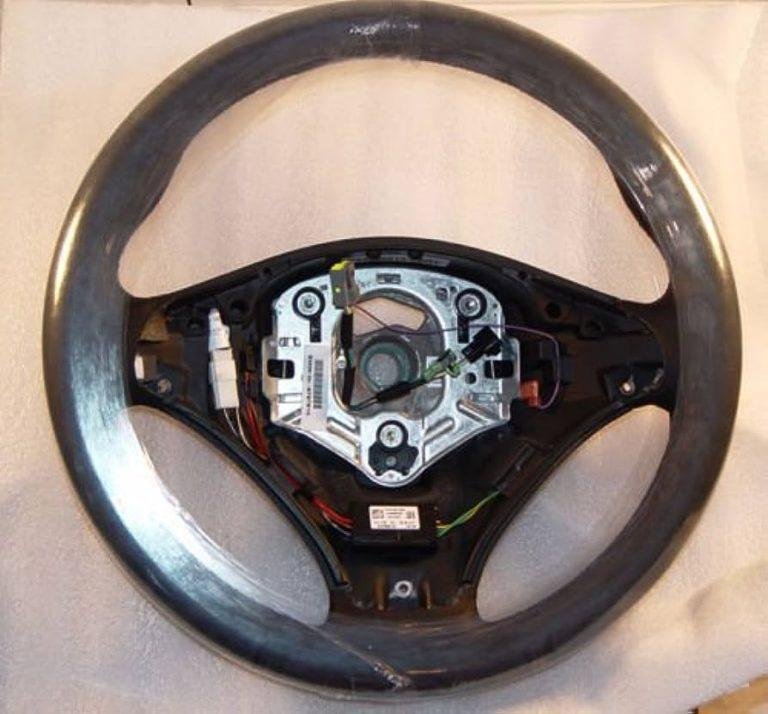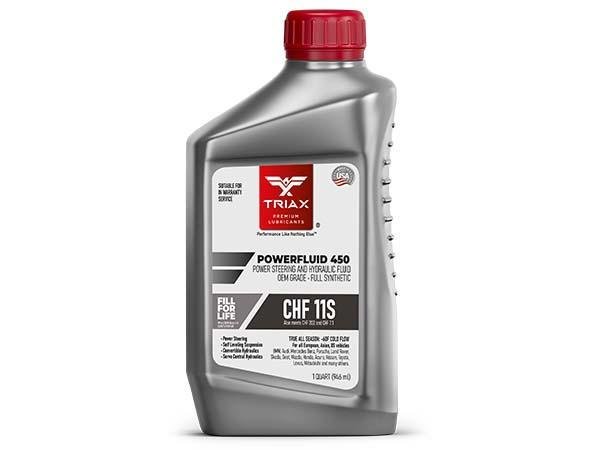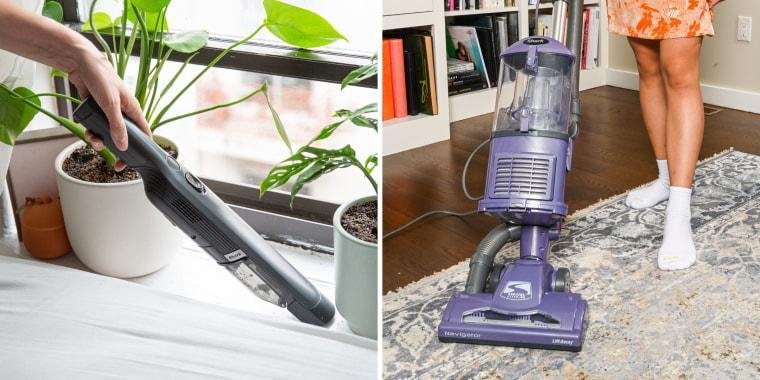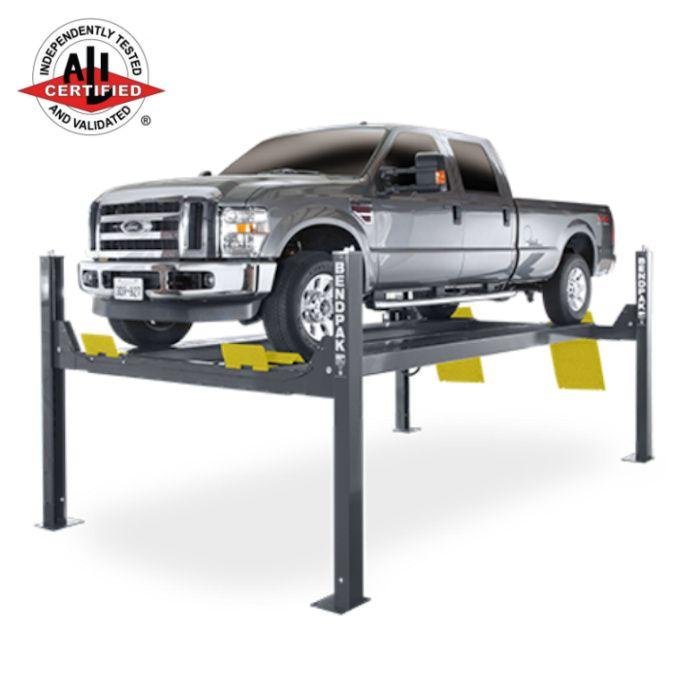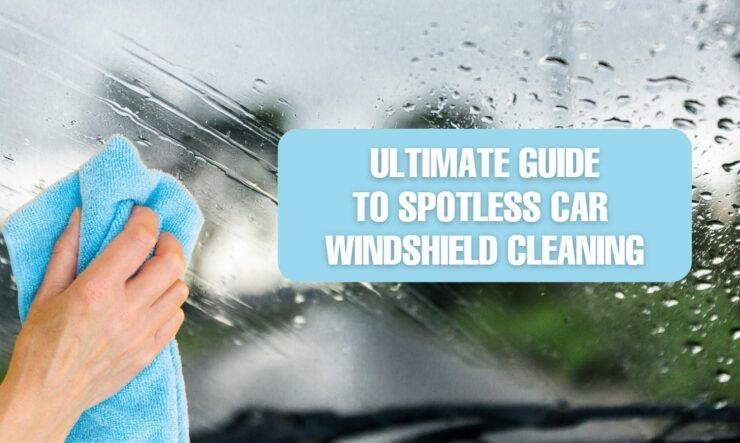Yes, it is recommended to grease your towball as it helps reduce friction and improve towing performance. Greasing the towball ensures smoother movement and minimizes wear and tear on your trailer hitch.
Properly greased towballs also help prevent corrosion, rust, and binding, which can affect the overall towing experience and lifespan of the towing equipment. Regularly applying grease to the towball helps maintain its functionality and promotes safe and efficient towing. Remember to use an appropriate grease or lubricant designed for towing applications and follow the manufacturer’s guidelines for proper maintenance.
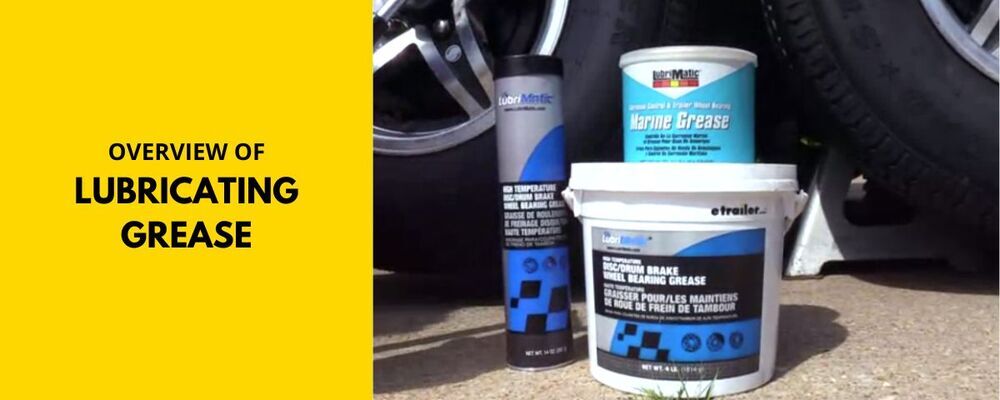
Credit: www.etrailer.com
The Importance Of Lubrication For Towballs
Proper lubrication is crucial for towballs to ensure smooth and safe towing. Greasing your towball reduces friction, minimizes wear and tear, and prevents rusting, ultimately improving towing performance and longevity.
Towball lubrication plays a crucial role in ensuring safe and efficient towing. As your towball is subjected to constant friction and wear, proper lubrication becomes essential to prevent potential issues and maximize performance. In this section, we will explore the factors that contribute to towball wear and friction, the potential consequences of inadequate lubrication, and the benefits of proper towball lubrication.
Factors That Contribute To Towball Wear And Friction
Towballs are exposed to various factors that can lead to wear and increased friction. Understanding these factors is key to maintaining your towball and preventing potential problems. Consider the following:
- Weight: The weight of your trailer or caravan exerts pressure on the towball, causing increased friction.
- Road conditions: Rough or uneven road surfaces can further intensify the friction between the towball and coupler.
- Temperature: Extreme temperatures can affect the lubricant’s effectiveness, leading to increased wear and reduced performance.
The Potential Consequences Of Inadequate Lubrication
Inadequate lubrication of your towball can have detrimental effects on both your towing experience and the longevity of your equipment. Here are some potential consequences to be aware of:
- Increased wear and damage: Without proper lubrication, the towball and coupler will experience greater friction, leading to wear, corrosion, and potential damage to the surfaces.
- Difficult coupling and uncoupling: Insufficient lubrication can make coupling and uncoupling your trailer or caravan a challenging and frustrating process, requiring excessive force and time.
- Reduced towing performance: Friction caused by inadequate lubrication can affect the smooth operation of your towing system, resulting in reduced performance and potential safety concerns.
The Benefits Of Proper Towball Lubrication
Proper towball lubrication offers numerous benefits that are worth considering. By maintaining a well-lubricated towball, you can experience the following advantages:
- Reduced wear and tear: Lubrication minimizes friction on the towball’s surface, protecting it from excessive wear and tear and helping to extend its lifespan.
- Smooth coupling and uncoupling: Adequate lubrication ensures effortless coupling and uncoupling, saving you time, effort, and potential frustration during your towing adventures.
- Enhanced towing performance: With reduced friction, your towing system can operate more efficiently, providing optimal performance and a smoother towing experience.
- Protection against corrosion: Lubrication forms a protective barrier against moisture and other corrosive elements, helping to prevent rust and degradation of the towball’s surface.
Ensuring proper lubrication for your towball is essential for maintaining its performance, longevity, and overall towing experience. By understanding the factors that contribute to towball wear and friction, the potential consequences of inadequate lubrication, and the benefits of proper lubrication, you can make informed decisions about the maintenance and care of your towing equipment.
Common Misconceptions About Greasing Towballs
Greasing your towball is often misunderstood. Contrary to popular belief, lubricating the towball is not necessary as modern tow hitches are designed to be self-lubricating. Grease can attract dirt and grime, causing more harm than good.
Exploring The Myth Of “Self-Lubricating” Towballs
- Many individuals believe that towballs are “self-lubricating” and do not require any additional grease. However, this is a common misconception that needs to be addressed.
- Towballs are not designed to lubricate themselves, and relying solely on this assumption can lead to potential problems.
- Let’s delve deeper into the myth of “self-lubricating” towballs to gain a better understanding of why greasing is necessary:
- Towballs are made of solid metal and lack any internal mechanism that can generate lubrication.
- The friction caused by towing can lead to heat buildup, causing the towball to become dry and potentially lead to wear and tear.
- External lubrication in the form of grease helps to reduce friction and heat, helping to prolong the lifespan of your towball.
Debunking The Notion That Greasing Attracts Dirt And Debris
- Another common misconception about greasing towballs is the belief that it attracts dirt and debris, making the ball dirtier and more difficult to maintain. However, this notion is unfounded, and proper greasing can actually help protect the towball.
- Let’s dispel this myth by examining the facts:
- Greasing your towball creates a protective barrier that helps repel dirt and debris, preventing them from adhering to the surface.
- Additionally, the lubrication provided by grease reduces friction, minimizing the chances of dirt and debris sticking to the towball.
- Regular maintenance, including cleaning and reapplying grease when necessary, can ensure that your towball remains in optimal condition, free from excessive dirt and debris accumulation.
Discussing The Optimal Lubricants For Towballs
- Now that we have cleared up some common misconceptions about greasing towballs, let’s discuss the best lubricants to use for this purpose.
- When it comes to choosing the right lubricant for your towball, consider the following options:
- Lithium-based grease: This type of grease is widely recommended for towballs due to its excellent lubricating properties and resistance to high temperatures.
- Waterproof grease: As the name suggests, waterproof grease is specifically formulated to withstand exposure to water and moisture, making it an ideal choice for towing in wet conditions.
- Synthetic grease: Synthetic greases offer superior longevity and resistance to extreme temperatures, making them suitable for heavy-duty towing applications.
- Remember that regardless of the lubricant you choose, regular inspection and maintenance are essential to ensure proper lubrication of your towball. A well-greased towball contributes to a smoother towing experience, increased safety, and minimized wear and tear on your trailer and tow vehicle.
By addressing these common misconceptions and understanding the benefits of greasing towballs, you can make informed decisions regarding proper maintenance and enjoy a more seamless towing experience. Take the time to choose the right lubricant for your towball and establish a regular maintenance routine to extend its lifespan and ensure optimal performance.
How To Properly Grease Your Towball
Properly greasing your towball is important to ensure efficient towing and prevent unnecessary wear and tear. Regularly applying a suitable grease prevents rust, reduces friction, and maintains a smooth towing experience.
Step-By-Step Guide To Cleaning And Prepping The Towball:
- Begin by removing any dirt, debris, or rust from the towball using a stiff brush or wire wool. This ensures a clean surface for proper lubrication.
- Thoroughly clean the towball with a mild detergent and water solution, making sure to remove any grease or oil residues. Rinse it thoroughly and allow it to dry completely.
- Inspect the towball for any signs of wear or damage. If you notice any dents, cracks, or excessive wear, it’s best to replace the towball before proceeding further.
- Apply a rust inhibitor or protective coating to the towball to prevent future corrosion. This can be done using a spray or brush-on product, specifically designed for metal protection.
- If the towball has a removable cover or cap, ensure it is clean and free from any debris. Wipe it down with a clean cloth and check for any signs of damage or wear. Replace it if necessary.
- Consider using a towball cover when the vehicle is not in use to protect it from environmental elements such as dirt, moisture, and direct sunlight. This can significantly extend the lifespan of the towball.
Recommended Lubrication Techniques And Products:
- Choose a high-quality, purpose-made towball grease or lubricant that is specifically formulated for towing applications. Avoid using general-purpose lubricants or grease as they may not provide adequate protection.
- Apply a thin, even layer of grease to the towball surface. Ensure complete coverage but avoid applying an excessive amount that could attract dirt or debris.
- Consider using a grease applicator or glove to avoid direct contact with the lubricant. This prevents any potential transfer of contaminants to the towball.
- Regularly inspect the towball to ensure the lubrication is intact. If you notice any signs of wear or loss of lubrication, reapply the grease as necessary.
- Avoid mixing different types of lubricants or greases as they may not be compatible, potentially leading to reduced performance or damage to the towball. Stick to a single, recommended product for consistent results.
Tips For Maintaining The Integrity Of The Lubrication:
- Avoid using excessive force when coupling or uncoupling the trailer. This can cause the grease to be displaced or squeezed out, reducing its effectiveness.
- Periodically check the towball and trailer coupling for any signs of wear or damage. If you notice any issues, address them promptly to avoid further complications.
- In case of prolonged towing or exposure to harsh weather conditions, consider reapplying the grease to maintain optimal lubrication.
- Clean the towball after each use, especially if it comes into contact with muddy or dirty surfaces. This helps prevent the accumulation of debris and ensures a consistent lubrication layer.
- Regularly inspect the lubrication for signs of contamination, dirt, or water ingress. If you observe any abnormalities, clean and reapply the grease as needed.
Remember, proper maintenance and lubrication of your towball are crucial for safe and effective towing. By following these step-by-step guidelines, selecting the right lubrication products, and maintaining the integrity of the lubrication, you can enhance the longevity and performance of your towball.
Silicone Grease: The Ideal Choice For Long-Lasting Lubrication
Silicone grease is an excellent choice for long-lasting lubrication of your towball. Its high resistance to water, extreme temperatures, and corrosion make it the ideal option, providing smooth and efficient towing without frequent reapplication.
Silicone grease is a fantastic lubricant for towballs, offering a range of benefits and properties that make it an excellent choice for long-lasting lubrication. With its exceptional versatility and durability, silicone grease provides optimal performance in reducing friction and wear on towballs, ensuring smooth towing experiences.
In this section, we will explore the benefits and properties of silicone grease, as well as how it effectively minimizes friction and wear. We’ll also recommend some reliable silicone grease brands specifically designed for towball lubrication.
Benefits And Properties Of Silicone Grease:
- Resistant to high temperatures: Silicone grease has superb resistance to extreme heat, making it ideal for applications that involve high temperatures. It maintains its lubricating properties even in harsh conditions, preventing the towball from seizing or becoming ineffective.
- Excellent water resistance: One of the standout features of silicone grease is its exceptional water resistance. It effectively repels water and prevents moisture from corroding the towball surface, ensuring long-term protection against rust and corrosion.
- Non-conductive properties: Silicone grease is non-conductive, meaning it insulates against electrical current. This property makes it particularly suitable for towballs that have electrical connections, as it provides a protective barrier and prevents the risk of short circuits.
- Compatibility with various materials: Silicone grease is compatible with a wide range of materials commonly used for towballs, such as steel and aluminum. Its versatility allows for optimum lubrication regardless of the towball material, ensuring smooth operation and reduced wear.
How Silicone Grease Reduces Friction And Wear On Towballs:
- Lubricates and coats the towball surface: By applying silicone grease to the towball surface, a thin, protective layer is formed, providing lubrication and reducing friction. This coating prevents direct metal-to-metal contact between the towball and the coupling, minimizing wear and tear.
- Smoothens rough surfaces: Silicone grease has the ability to smooth out any rough or uneven areas on the towball surface, ensuring a more consistent and even contact with the coupling. This further reduces friction and wear, promoting longevity and optimal towing performance.
- Resists dirt and debris: Silicone grease has excellent resistance to dirt and debris, preventing them from adhering to the towball surface. By keeping the surface clean and free from contaminants, silicone grease reduces the chance of abrasive particles causing friction and wear.
Recommended silicone grease brands for towballs:
- Brand a: Known for its high-quality silicone grease specifically designed for towballs, brand a offers superior lubrication and protection. Its long-lasting formula ensures optimal performance even under demanding towing conditions.
- Brand b: With a reputation for reliability, brand b’s silicone grease is a top choice among towing enthusiasts. It effectively reduces friction and wear, ensuring smooth towing experiences and prolonging the lifespan of the towball.
Remember, when it comes to lubricating your towball for long-lasting performance, silicone grease is an excellent choice. Its beneficial properties, such as high-temperature resistance, water resistance, and compatibility with various materials, make it a superior lubricant. By reducing friction and wear, silicone grease helps maintain the functionality and durability of towballs.
For optimal results, consider using trusted brands like brand a or brand b, ensuring you have a smooth and reliable towing experience.
Lithium Grease: A Versatile Option For Various Towing Applications
Lithium grease offers versatility for various towing applications, making it an excellent option for greasing towballs. Its lubricating properties help reduce friction and wear, ensuring smooth towing and preventing damage to the tow hitch. Trust lithium grease for optimal performance and peace of mind during your towing adventures.
Advantages Of Lithium Grease For Towballs:
- Provides excellent lubrication: Lithium grease is known for its superior lubricating properties. When applied to a towball, it forms a protective layer that reduces friction and wear during towing, ensuring smooth operation.
- Resists water and corrosion: One of the key advantages of lithium grease is its ability to repel water and resist corrosion. This is especially important for towballs, as they are exposed to various weather conditions. The water-resistant properties help prevent rust and corrosion, prolonging the lifespan of the towball.
- Wide temperature range: Lithium grease is capable of performing well across a wide temperature range, making it ideal for various towing applications. Whether you’re towing in scorching heat or freezing temperatures, the grease maintains its effectiveness, ensuring consistent lubrication.
- Versatility: Lithium grease is a versatile lubricant that can be used for various other purposes apart from towballs. It can be applied to trailer hitches, couplers, and other components involved in towing, providing all-around protection and lubrication.
Exploring The Compatibility Of Lithium Grease With Different Materials:
- Metal compatibility: Lithium grease is generally compatible with a wide range of metals commonly used in towballs, such as steel and aluminum. It adheres well to the surface of these materials, providing an effective lubricating barrier.
- Rubber compatibility: When it comes to rubber components like trailer hitch covers or ball mounts with rubber inserts, it is important to ensure that the lithium grease used is safe for rubber. Some lithium greases may degrade rubber over time. Therefore, it is recommended to choose a lithium grease that is specifically formulated to be compatible with rubber.
- Plastic compatibility: Similar to rubber, plastic components can be susceptible to degradation when exposed to certain lubricants. It is crucial to select a lithium grease that is safe for use on plastic materials commonly found in towballs.
Popular Lithium Grease Products For Towball Lubrication:
- Valvoline synpower synthetic grease: This high-quality lithium grease offers excellent protection and is compatible with various materials. It provides exceptional lubrication for towballs, ensuring a smooth towing experience.
- Lucas oil x-tra heavy duty grease: Known for its long-lasting performance, this lithium grease offers outstanding resistance to water, corrosion, and heat. It is suitable for use on towballs and other towing components.
- Mobil 1 synthetic grease: This lithium-based grease is designed to handle heavy loads and high temperatures. It forms a durable protective layer on the towball, reducing friction and wear.
- Permatex white lithium grease: A versatile option, this lithium grease is suitable for both metal and rubber components. It is known for its water-resistant properties and provides long-lasting lubrication for towballs.
Remember, always refer to the manufacturer’s instructions and recommendations when choosing and applying lithium grease to ensure optimal performance and compatibility with your towball.
Synthetic Grease: Achieving Optimal Performance And Protection
Synthetic grease offers optimal performance and protection for your towball, ensuring smooth operation and minimizing wear and tear. With its superior lubricating properties, greasing your towball is essential for ensuring safe and efficient towing.
Understanding The Unique Characteristics Of Synthetic Grease
- Synthetic grease is a specially formulated lubricant that offers superior performance compared to traditional greases. It contains synthetic base oils and advanced additives that enhance its lubricating capabilities.
- Synthetic grease has excellent temperature stability, meaning it can withstand high temperatures without breaking down or losing its effectiveness. This is particularly important when it comes to towballs that are subject to heavy loads and friction.
- Another unique characteristic of synthetic grease is its resistance to oxidation and degradation. It has a longer service life and can provide better protection against rust, corrosion, and wear.
- Synthetic grease also has a lower coefficient of friction, allowing for smoother movement between the towball and the trailer coupling. This reduces frictional heat and wear, enhancing the overall performance and lifespan of the towball.
How Synthetic Grease Enhances Lubrication For Towballs
- Synthetic grease creates a protective film between the towball and the trailer coupling, reducing friction and wear during towing.
- It provides excellent adhesion and prevents the grease from being displaced, even under heavy loads or high-speed towing.
- Synthetic grease’s superior lubricating properties ensure smooth and consistent movement between the towball and the trailer coupling, reducing the risk of jerking or jolting during towing.
- Synthetic grease’s high resistance to water washout ensures that it stays in place, even in wet or rainy conditions.
Recommended Synthetic Grease Formulas For Towball Maintenance
- Lithium complex grease: Ideal for general towball maintenance, lithium complex grease offers high-temperature stability, excellent water resistance, and long-lasting lubrication.
- Synthetic polyurea grease: Best suited for high-speed towing or extreme temperature conditions, synthetic polyurea grease provides exceptional thermal stability, high load-carrying capacity, and resistance to oxidation.
- Ptfe (polytetrafluoroethylene) grease: If you’re looking for maximum lubrication and protection, ptfe grease is an excellent choice. It provides a long-lasting lubricating film, extreme pressure resistance, and superior anti-wear properties.
Synthetic grease offers numerous benefits when it comes to lubricating towballs. Its unique characteristics, such as temperature stability, resistance to oxidation, and lower friction coefficient, ensure optimal performance and protection. By choosing the right synthetic grease formula for your towball maintenance, you can extend its lifespan, reduce wear, and enhance your towing experience.
Signs Of Inadequate Lubrication On Towballs
Inadequate lubrication on towballs can lead to noticeable signs of wear and tear, such as rust or corrosion. It is important to regularly grease your towball to ensure smooth towing and avoid potential damage.
Recognizing Common Indicators Of Insufficient Lubrication
- Lack of smooth movement: When the towball does not glide easily, it may suggest a lack of proper lubrication. You may notice jerky movements or resistance when coupling or uncoupling.
- Excessive wear and tear: Inadequate lubrication can lead to accelerated wear and tear on the towball, causing visible signs of rust, corrosion, or even pitting.
- Unusual noises: If you hear squeaking, grinding, or other abnormal sounds while towing, it could indicate that the towball lacks sufficient lubrication.
- Difficulty in hitching: When the towball requires excessive force to hitch the trailer, it could be an indication that lubrication is needed. A well-lubricated towball should allow effortless coupling.
Understanding The Potential Risks And Consequences Of Neglecting Lubrication
Neglecting lubrication on towballs can have serious repercussions. Here are the potential risks and consequences:
- Increased friction: Without proper lubrication, the towball and trailer hitch will experience higher friction levels, leading to accelerated wear. This can result in expensive repairs or replacements.
- Reduced towing capacity: Inadequate lubrication can compromise the integrity of the towball, reducing its overall towing capacity. This could lead to safety issues and potentially cause accidents on the road.
- Safety hazards: A lack of lubrication can impact the towing stability, causing the trailer to sway or jackknife. This poses a significant risk to both the driver and other road users.
- Damage to the trailer: The absence of lubrication may cause strain and stress on the trailer’s hitch receiver, potentially damaging it and leading to costly repairs.
Importance Of Regular Inspections And Maintenance
Regular inspections and maintenance are crucial to ensure optimal performance and safety. Here are the reasons why:
- Preventive measures: Regularly inspecting and lubricating the towball helps prevent wear and tear, reducing the risk of breakdowns or accidents.
- Extending lifespan: Proper lubrication extends the lifespan of the towball, reducing the need for frequent replacements and saving money in the long run.
- Enhanced towing experience: A well-maintained towball provides smooth coupling and uncoupling, resulting in a more pleasant towing experience.
- Safety assurance: By keeping the towball adequately lubricated, you can minimize the risk of accidents and ensure safer journeys for yourself and others on the road.
Remember, regularly lubricating your towball is not only beneficial to the overall performance of your towing setup but also essential for your safety and the safety of everyone around you.
How Often Should You Grease Your Towball?
Keep your towball well-greased for optimal performance and safety while towing. Regular greasing, ideally before each use, helps prevent rust and ensures smooth operation for a stress-free towing experience.
Maintaining a well-lubricated towball is crucial for safe and efficient towing. But how often should you grease your towball? The frequency of lubrication depends on several factors that should be considered for optimal performance. Here, we’ll explore these factors, provide recommendations from industry experts and manufacturers, and guide you in creating a maintenance schedule for towball lubrication.
Factors To Consider When Determining The Frequency Of Lubrication:
- Towing frequency: The more frequently you tow, the more wear and tear your towball is subjected to. If you frequently tow heavy loads or cover long distances, lubricating your towball more often is advisable.
- Environmental conditions: Harsh weather conditions, such as rain, snow, and high humidity, can cause corrosion and degradation of the towball. In such cases, more frequent lubrication is necessary.
- Exposure to dirt and debris: Off-road adventures or towing on dusty roads can result in dirt and debris accumulating on the towball, leading to increased friction and potential damage. Regular cleaning and lubrication are essential to prevent this.
- Type of lubricant used: Different lubricants have varying durations of effectiveness. Some may require more frequent application than others. Refer to the manufacturer’s guidelines for specific recommendations.
Recommendations From Industry Experts And Manufacturers:
- Most industry experts suggest lubricating your towball before each towing session. This ensures proper lubrication and reduces the risks associated with insufficient lubrication.
- Manufacturers often provide specific guidelines regarding the lubrication interval for their towballs. It’s crucial to consult the manufacturer’s manual or website to determine the recommended frequency of lubrication for your specific towball model.
- In general, if the manufacturer’s recommendations are not available, a good rule of thumb is to lubricate the towball every 1,000 miles or every three months, whichever comes first. However, this can vary depending on the factors discussed above.
Creating A Maintenance Schedule For Towball Lubrication:
- Start by reviewing the manufacturer’s guidelines, if available.
- Assess your towing frequency and environmental conditions to determine the level of wear and tear your towball is exposed to.
- Consider the type of lubricant you use and its recommended duration of effectiveness.
- Establish a routine maintenance schedule, ensuring that the towball is lubricated adequately.
- Regularly inspect the towball for signs of wear, dirt buildup, or corrosion. Clean and lubricate as necessary.
- Document your maintenance schedule and adhere to it diligently, adjusting as needed based on changes in towing frequency or environmental conditions.
Keeping your towball properly lubricated is crucial for a smooth and safe towing experience. By considering the various factors, following manufacturer recommendations, and creating a structured maintenance schedule, you’ll ensure that your towball remains in optimal condition, providing reliable performance whenever you hit the road.
Additional Tips For Extending The Lifespan Of Your Towball Lubrication
To extend the lifespan of your towball lubrication, consider these additional tips: clean the towball before applying grease, use a high-quality lubricant suitable for towing, reapply grease regularly, store the greased towball cover when not in use, and inspect for any signs of wear or damage.
Maintaining proper lubrication will optimize performance and ensure a smooth towing experience.
Greasing your towball is an important step in ensuring smooth towing and preventing unnecessary wear and tear. However, to maximize the lifespan of your towball lubrication, there are additional best practices you should be aware of. Proper storage techniques, regular cleaning, and reapplication of lubrication are key to keeping your towball in optimal condition.
Best Practices For Minimizing Wear And Tear On Towballs:
- Avoid excessive force during coupling: When attaching your trailer or caravan, apply steady pressure rather than forcing it into place. Excessive force can cause unnecessary stress on the towball.
- Check for signs of wear: Regularly inspect your towball for any signs of damage or wear. Look for scratches or dents that may affect its performance. If you notice any issues, consider replacing your towball to prevent further damage.
- Choose a high-quality lubricant: Selecting the right lubricant is crucial for extending the lifespan of your towball. Opt for a high-quality, water-resistant lubricant specifically designed for towing purposes. Avoid using standard grease or oil, as they may not provide adequate protection.
- Ensure proper torque: When attaching the towball to your vehicle, ensure it is properly torqued according to the manufacturer’s specifications. This helps maintain stability and prevents unnecessary movement that can lead to wear and tear.
- Regularly inspect the towball’s surface: Over time, dirt, grime, and debris can accumulate on the towball’s surface, impeding its performance. Make it a habit to clean your towball before each use and inspect for any foreign particles that may have adhered to the surface.
- Avoid excessive speed and sudden stops: Excessive speed and sudden stops put additional strain on the towball and can lead to accelerated wear and tear. Drive at a safe speed and maintain a steady pace to minimize stress on the towball.
Proper Storage Techniques For Greased Towballs:
- Keep it covered: When not in use, it is essential to keep your greased towball protected from the elements. Use a protective cover or dedicated towball storage cap to prevent moisture, dirt, and debris from accumulating on its surface.
- Store in a dry environment: Moisture is the enemy of any lubricated surface. Store your towball in a dry environment, such as a garage or covered area, to prevent rusting and degradation of the lubricant.
- Inspect before reusing: Before each towing session, inspect your towball for any signs of degradation or contamination. If you notice any issues, thoroughly clean and reapply lubrication to ensure optimal performance.
How To Clean And Reapply Lubrication When Necessary:
- Clean with a mild detergent: Start by cleaning your towball thoroughly using a mild detergent and water solution. Scrub the surface gently with a soft brush or sponge to remove any dirt, grease, or residue that may have accumulated.
- Dry completely: After cleaning, ensure the towball is completely dry before applying lubrication. Moisture can hinder the lubricant’s effectiveness and contribute to corrosion.
- Apply an even layer of lubrication: Using a clean cloth or gloved hand, apply a thin and even layer of lubrication over the entire towball surface. Ensure that the lubricant covers the entire area that will come into contact with the trailer or caravan coupling.
- Regular maintenance: Periodically check the condition of the lubrication coating on your towball. If it appears thin or dry, it may be time for reapplication. Additionally, reapply lubrication after heavy rainfall, as moisture can wash away the protective layer.
By following these best practices for minimizing wear and tear, proper storage techniques, and knowing how to clean and reapply lubrication when necessary, you can extend the lifespan of your towball lubrication and ensure smooth and safe towing experiences.
Frequently Asked Questions Of Should I Grease My Towball?
Should You Put Grease On A Ball Hitch?
Yes, it’s recommended to apply grease to a ball hitch. Greasing the ball hitch helps reduce friction, making it easier to tow and maneuver your trailer. Grease provides a protective layer that prevents rust and corrosion, helping to extend the lifespan of your hitch.
It also helps to keep the hitch functioning smoothly, allowing for a secure and stable connection between your vehicle and the trailer. Regularly lubricating your ball hitch with grease is a simple maintenance task that can greatly enhance your towing experience.
Keep in mind that it’s important to use a high-quality, multi-purpose grease specifically designed for trailer hitches to ensure optimal performance and protection. By greasing your ball hitch regularly, you can ensure a safer and more efficient towing experience.
How Do You Lubricate A Tow Ball?
To lubricate a tow ball, follow these simple steps: 1. Clean the tow ball using a mild detergent and a cloth to remove any dirt or grime. 2. Apply a lubricant specifically designed for towing applications. Choose a high-quality lubricant that is suitable for your tow ball material (such as zinc-plated or chrome-plated).
3. Use a cloth or a disposable glove to apply a thin layer of lubricant to the tow ball. Make sure to cover the entire surface. 4. Rotate the tow ball to evenly distribute the lubricant and ensure smooth movement.
Remember, regular lubrication is essential to prevent friction and ensure safe towing. Check the manufacturer’s recommendations for specific guidelines on lubrication frequency and product selection. Always inspect your tow ball for signs of wear or damage before every use. Proper lubrication will prolong the life of your tow ball and ensure optimal towing performance.
Why Do You Put Grease On Tow Bars?
Grease is applied to tow bars to reduce friction and prevent wear and tear. It helps in smooth movement and ensures easier hitching and unhitching of trailers or other towed vehicles. The grease creates a protective layer on the tow bar surface, preventing rust and corrosion.
It also helps in minimising any noise or vibrations that may occur during towing. Additionally, the grease helps in maintaining the longevity of the tow bar by reducing the chances of damage from excessive force or pressure. Applying grease to tow bars is a simple and cost-effective measure that ensures optimal performance and extends the lifespan of the towing system.
How Often Should You Grease A Trailer Hitch?
Greasing a trailer hitch should be done regularly to ensure proper functioning. It is recommended to grease the hitch every three months or every 3,000 miles, whichever comes first. Applying grease to the hitch helps prevent corrosion and rust, which can lead to hitch failure or difficulty in attaching and detaching trailers.
Regular greasing also reduces friction and wear on the hitch components, prolonging their lifespan. To grease the trailer hitch, clean any dirt or debris from the hitch and apply a generous amount of high-quality grease to the moving parts. Make sure to use a grease that is specifically designed for trailer hitches.
Regular greasing will keep your trailer hitch in optimal condition, providing safe and smooth towing experiences.
Conclusion
To sum up, greasing your towball is a simple and effective way to ensure smooth towing and longevity of your towing equipment. By reducing friction between the towball and the coupler, you minimize wear and tear, enhance safety, and prevent unwanted noise and vibration during towing.
Regularly greasing your towball also helps to protect against rust and corrosion, particularly in areas with high humidity or salt exposure. Additionally, greasing the towball allows for easier hitching and unhitching, saving you time and effort. Remember to use a high-quality grease that is compatible with your towball material and follow the manufacturer’s recommendations for application frequency.
Taking the time to grease your towball is a small investment in maintenance that can result in significant benefits and a smoother towing experience in the long run.


